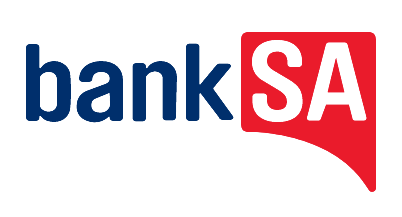
How to safeguard against scams
It’s getting harder to pick a scam from a legitimate call, text or email – and it’s costing Australians more than $2 billion a year.

Photo: Taylor Grote/Unsplash
Scammers are growing in their sophistication by posing as reputable companies when convincing Australians to participate in activities.
Scams often play on emotions or catch people unaware. For example, in February, a BankSA scam report looked at the cost of romance scams.
In these types of scams, the perpetrators use emotional triggers to lure in a target and trick them into sending money, particularly in the lead up to Valentine’s Day.
Romance scams increased 26 per cent in 2022 and have quadrupled since 2020. However, they are just the tip of the iceberg.
Following are some of the most prevalent scams and safeguards against them:
Payment scams – When transacting in Facebook, Gumtree and other online marketplaces, apply caution. Scammers can pose as both buyers and sellers, trying to scam you out of money or items you might be looking to buy or sell. Businesses are not immune from scams either, with payment redirection scams via email being the most common.
- Safeguard – Set up and use PayID when making payments instead of a BSB and account number. PayID displays the registered payee name, allowing you to verify the payee is the intended recipient before sending your payment. Note – PayID only works for accounts held in Australia.
- Safeguard – Be cautious to anyone asking you to update or upgrade your PayID to receive or make a payment, this is a scam.
- Safeguard – Double check the payment details on emailed invoices from suppliers to ensure they have not been changed. If in doubt, phone the supplier before paying.
Phone calls imitating a bank – Banks, including BankSA, won’t ask you to share your Internet Banking Password or Secure Codes, request to authorise payments on your behalf, or ask you to transfer money to another bank account to ‘keep it safe’.
- Safeguard – Always call your bank on a number sourced from your bank’s website, app or on the back of your card.
- Safeguard – If you receive an unexpected call, no matter how convincing the caller is, ask for a reference number, hang up, and call your bank back on a number sourced from the company’s website.
Emails imitating a bank – Never click on links in an email asking you to logon to your banking.
- Safeguard – Always logon safely by using the app or typing your bank’s website into your browser.
SMSs imitating a bank – Scammers may impersonate legitimate organisations, such as your bank, to message you. Your phone will automatically group these messages alongside existing messages you may have previously received from the organisation, making it very difficult to detect what is real.
- Safeguard – As with emails, don’t click on the links. Call your bank on a number sourced from your bank’s website, app or on the back of your card to check the validity of the message and respond.
Help desk and customer service scams – Remote access scams typically start with someone saying they are from your internet provider and they have detected a virus on your computer.
- Safeguard – Never allow someone contacting you to have access to, or take control of, your phone or computer.
- Safeguard – Never logon to your banking when someone has control of your device.
Unauthorised payments – It pays to monitor your accounts regularly for unexpected transactions or new accounts being opened.
- Safeguard – If you see an unusual activity, call your bank immediately.
- Safeguard – Ensure you have two-factor authentication active on your online accounts, including your mobile phone provider, your financial institution, social media and your personal email accounts.
- Safeguard – If you’re a customer of BankSA, take the Security Wellbeing Check in the BankSA app to review your current security settings. Go to ‘Services’ in the App.
If you suspect you have been the target of a scam, call your bank immediately. Your bank will always try to stop payments, even if the funds have already left your account, and prevent others from falling for the same scam.
More information about the latest scams and how to avoid them is available from BankSA.




